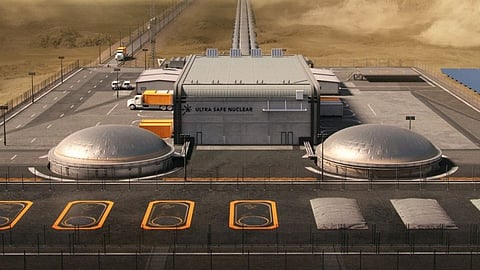
- NEWS
- the EDIT
- COMMENTARY
- BUSINESS
- LIFE
- SHOW
- ACTION
- GLOBAL GOALS
- SNAPS
- DYARYO TIRADA
- MORE

Manila Electric Co. (Meralco) has partnered with more universities in North America and China to boost Filipino knowledge on nuclear energy management and operations, despite serious efforts to pioneer its development in the country.
Meralco said on Sunday that it has formally signed memoranda of understanding with Ontario Tech University in Canada and the University of Illinois Urbana-Champaign in the United States.
In China, the company partnered with Harbin Engineering University and Tsinghua University, both affiliated with the China National Nuclear Corporation Overseas Ltd.
“Our commitment to exploring nuclear energy is reinforced by these partnerships, which will give us valuable knowledge on nuclear technologies and help ensure our plans align with government policies before deployment,” Meralco executive vice president and chief operating officer Ronnie L. Aperocho said.
In 2023, Meralco launched the Filipino Scholars and Interns on Nuclear Engineering (FISSION) program through its Meralco Power Academy, which sends Filipino engineers abroad to study nuclear engineering.
First batch of experts
The first batch of FISSION scholars will begin their studies at UIUC and HEU and return to the Philippines in 2028 to join Meralco’s nuclear power generation unit.
“These partnerships and the FISSION program will help us develop a new generation of nuclear energy experts, empowering our energy professionals to advance sustainable energy solutions for the Philippines,” Aperocho added.
Just last month, Meralco hinted that it may push for larger-scale nuclear power sources to help advance the government’s target of utilizing 1,200 megawatts (MW) of nuclear power capacity by 2032.
According to Aparecho, power plant developers should consider prioritizing the development of small modular nuclear reactors (SMR) instead of micro-modular nuclear reactors (MMR).
Compared to MMRs with capacities of up to 10 MW only, SMRs have a significantly larger capacity and can generate power output of up to 300 MW.
Currently, Meralco has an existing partnership with Ultra Safe Nuclear Corp. to develop MMR nuclear energy for the Philippines. The company aims to establish a power plant using American technology before 2028.
